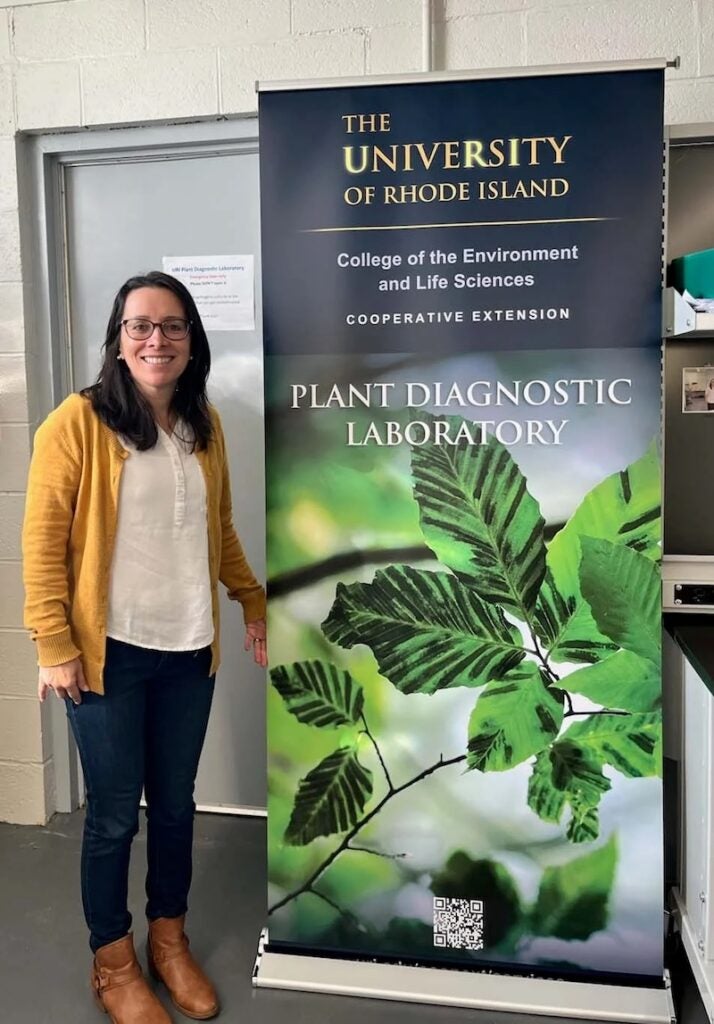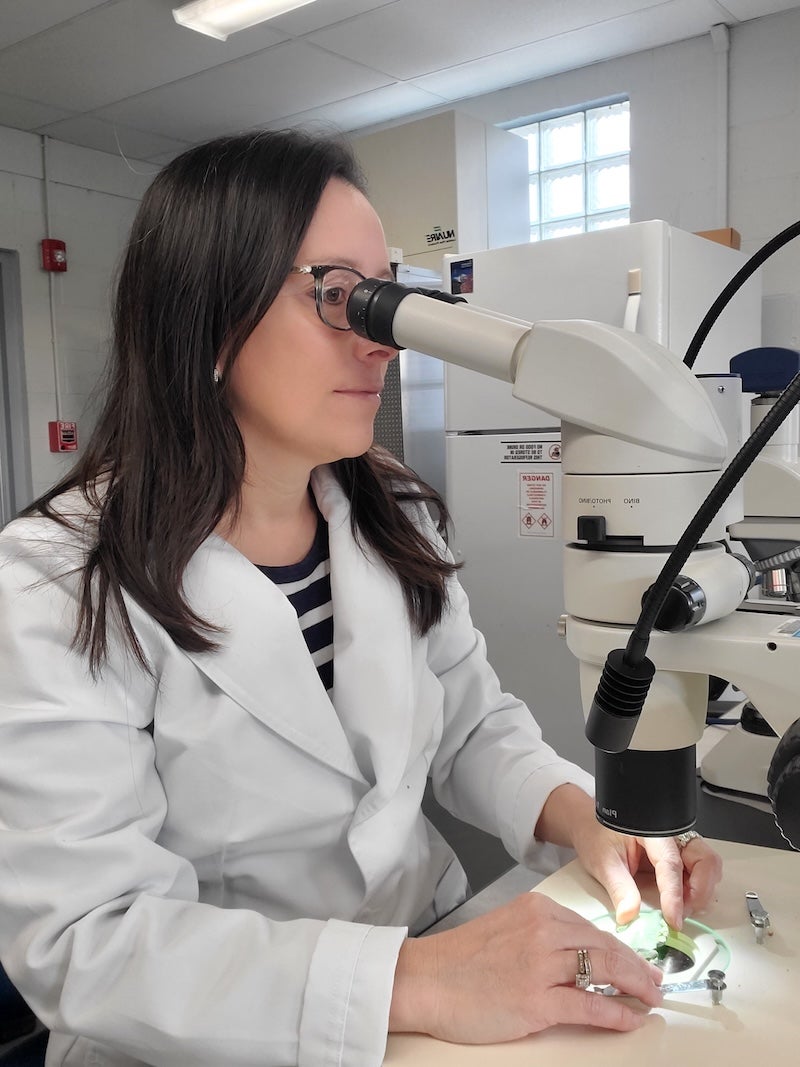The University of Rhode Island Plant Diagnostic Laboratory recently achieved Core Accreditation through the National Plant Diagnostic Network (NPDN), establishing the lab as a high-quality, standardized plant diagnostic facility.
“Under the direction of Dr. Keiddy Urrea-Morawicki, the University of Rhode Island becomes just the third land-grant university in the nation to achieve this designation, reflecting a strong commitment to quality diagnostics, underscoring its position at the forefront of the field, and representing a significant milestone for both the university and the NPDN,” says Dr. Stephanie Shea, NPDN Accreditation Program Manager and NEPDN Associate Director.
An internationally-respected consortium of plant diagnostic laboratories across all 50 states and four U.S. territories, the NPDN was established by the USDA’s National Institute of Food and Agriculture and the Office of Homeland Security in 2002. Their mission is to support plant health and biosecurity in U.S. agricultural and natural ecosystems by providing expert diagnostic capacity, communication, coordination, and quality pest and disease information.
The Core Accreditation program provides a framework for diagnostic labs to develop and implement a comprehensive quality management system. The accreditation designation signifies that the lab meets quality standards in protocols, equipment maintenance, data management, staff training, risk mitigation, biosecurity practices, and more.
“Achieving the NPDN Core accreditation has elevated the laboratory to a high level of standardized quality, resulting in more timely, reliable, accurate, and consistent results, and an overall more efficient diagnostic system for stakeholders,” says Urrea-Morawicki, director of the laboratory.
A fee-based service of URI Cooperative Extension, the lab serves as a resource for farmers, nurseries, landscape professionals, government agencies, and the general public in Rhode Island with plant testing, diagnosis, and recommendations. “We want to help people avoid guesswork and get real answers to their plant problems or questions,” Urrea-Morawicki says.

“We live in an era of rapid climate change, which is leading to changes in the stresses that plants experience,” says Rebecca Brown, chair of URI’s department of plant sciences and entomology. “Having the Plant Diagnostic Lab and being part of the national diagnostic network allows us to quickly and accurately identify new problems and keep abreast of potential insect and pathogen issues.”
URI’s accreditation process began in 2023 and involved upgrading lab facilities, acquiring permits and equipment, implementing a comprehensive quality management system, undergoing an audit, and more.
“It was a team effort,” says Urrea-Morawicki, “involving Associate Dean Lisa Townson and others in URI’s Cooperative Extension, especially Glenn Carlson, Kate Venturini Hardesty, Sejal Lanterman, and Vanessa Venturini and her team; Mamie Chen; Lisa Tewskbury of the URI Biological Control Lab and her team; David Weisberger and Heather Faubert (retired); the NPDN; Drs. Stephanie Shea and Alicyn Smart of the Northeast Plant Diagnostic Network; and all our clients, collaborators, and donors that support the lab.” Two undergraduate students, Lou Cabrera and Leia Fagundes, currently work part-time in the lab and were also key contributors to the accreditation process.
An integral part of the University’s land-grant mission, URI’s Cooperative Extension has been a trusted resource in Rhode Island since 1904 when it was established to address local agriculture issues. The Plant Diagnostic Laboratory brings Cooperative Extension’s mission to life by working with agricultural communities to deliver cutting-edge, science-based information to help solve problems.
URI’s Plant Diagnostic Laboratory is located next to the University’s Agronomy Farm on Thirty Acre Pond Road in Kingston. Learn more and find forms and guidelines at the program’s webpage here or contact PlantLab@uri.edu. A modest $20 covers the cost of testing, diagnosis and recommendations, and also helps support the lab.

